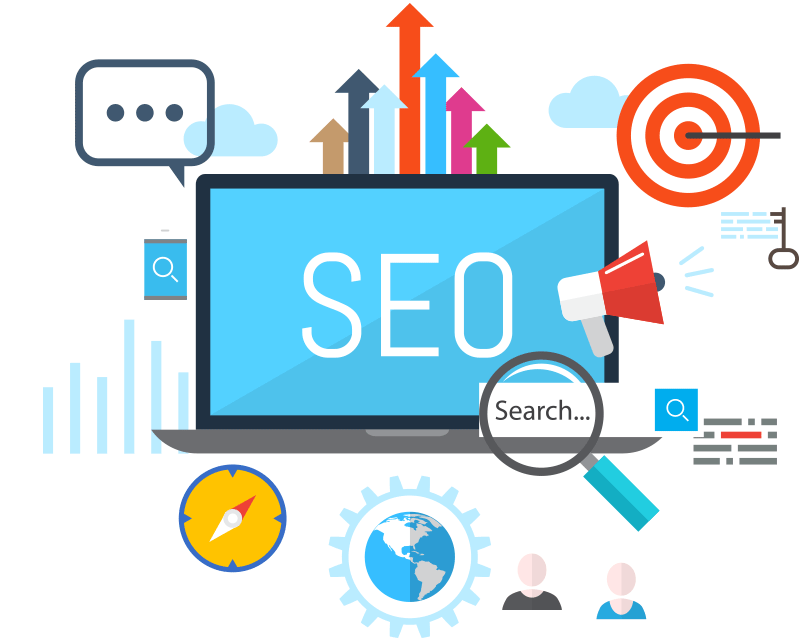

What is "SEO"?

- SEO tactics are completely free to employ unless you are paying an agency to implement these tactics.
- Potential customers often prefer to visit organic search results’ sites than paid ads.
- SEO tactics can be quite difficult to execute efficiently as the search engine algorithms are always changing.
- You may have to wait a few months to start experiencing your desired results with SEO.

- You’re able to experience very fast results as early as the very first day you start investing in PPC ads.
- The platforms are fairly simple to use. That being said, you’ll still need in-depth knowledge to gain the results that you’re after.
- PPC advertising isn’t free and can actually end up being quite costly.
- It is not as scalable as SEO

Why Does Your Business Need SEO?

Understanding Search Engines
- Google aims to keep their clients (aka web users) happy and satisfied
- Google wants to make maximum profit. They do this through advertising, and through ensuring that they are a premium platform to which web users will keep coming back.
- Crawling- Google makes use of both bots and spiders to ‘crawl’ all existing websites, both new and updated. This is an automated process that follows links.
- Indexing- The bots then index these sites and add them to Google’s index of billions of websites.
- Ranking- The most important step in the process is ranking, in which the advanced Google algorithm checks the quality and details of their indexed sites and rank them accordingly.


How to Get Your Rankings Up
- Quality content- Google loves quality content! The content on your site should be well written, original, free from any sort of plagiarism, and provide value to your end-user. Stay away from vague, thin content that has no objective or purpose in mind. Each of your pages and blogs should deliver a clear and purposeful message. Long-form content that is well written and well researched is definitely the most favoured by Google.
- Links to your site- For your site to appear authoritative, it is important that the algorithm sees links to your site in the crawling stage. But how do you get links to your site? You could request to be listed on local directories and be mentioned in other website’s blogs, to name a few. New businesses and websites often find it difficult to create quality backlinks, but an SEO expert will be able to assist you with this.
- Keywords- What keywords would users be using when searching for your products and services online? Keywords should appear naturally throughout your site content, as well as in meta descriptions and URLs.
- Website loading speeds- No one likes to wait for pages that take forever to load, and Google realises this. Websites with fast loading speeds are favoured and given higher rankings. This is why it’s important to check your page loading speeds often and find ways to speed them up, such as compressing images properly etc.
- Mobile optimisation- Did you know that the majority of web users browse the internet on their mobile phones? That is why Google favours sites that have mobile optimisation, and there is really no excuse for not optimising your site for mobile use.
- User experience- The user experience (or UX) is very important to Google. Your site should be built with the user in mind, with easy navigation, pleasing aesthetics, a clear message, etc.

Unsound SEO Practices that Should be Avoided
Overuse of Keywords
While stuffing a whole lot of keywords into your site may have once improved your SEO rankings, that is no longer the case. Now keyword stuffing looks inorganic and spammy and does not read naturally. What is even worse is when hidden text is used by background and text matching to get in as many keywords as possible without even having potential clients read the hidden text. Google is able to pick up on this and does not like it one bit.
Mirror Websites
Mirror websites are basically identical websites that are only separated by different keywords in an effort to come up at the top of all their relevant searches. This sort of strategy is just the sort of thing that is likely to get you banned or blacklisted by all search engines, not just Google.
Dodgy Links
Google is very particular about what types of links you use. Any links to and from dodgy or spam sites will act as red flags to the Google algorithm. Ensure that you do not take part in any phishing, link farms, backlinking schemes, or scraper sites. Only link to and from authoritative sources. It is better to have no links on your site than to have dodgy ones!
Plagiarism
If plagiarism sounds like a massive no-no to you, then great! But unfortunately, it still happens a lot in the world of copywriting and content creation! Running all of your content through programs like Copyscape should help cut down any ‘unintentional’ plagiarism and ensure that your content is 100% original. Google does not appreciate plagiarism in the slightest, and you will pay for it if it’s found on your site.

The Changes SEO Has Experienced
- Panda- This update that happened in Feb 2011 had a major impact on low-quality sites that had too many keywords stuffed into their content. This was also the first introduction of quality scores made by Google, and since 2011 we have seen multiple versions of the Panda update.
- Penguin- The Penguin update took place in 2012 in March, and it focused on penalising sites that had poor quality backlinks and links that linked to spam sites.
- Hummingbird- Hummingbird was introduced in Aug 2013 and, very much like Panda, affected sites that were of poor quality and that did not use keywords organically enough.
- Pigeon- The Pigeon update, which took place in July 2014, targeted and penalised sites that did not have good off-page and on-page SEO and also took location related searches into account for the first time.
- Mobilegeddon- The Mobilegeddon of April 2015 focused on mobile optimisation and began favoured sites that kept their mobile users in mind.
- RankBrain- RankBrain occurred shortly over Mobilegeddon and was introduced in October 2015. RankBrain introduced AI capabilities to help the Google algorithm become more intelligent when it comes to ranking sites and picking up on features related to user experience.
- Fred- Fred was first introduced in 2017 and heavily penalised and even eliminated sites that only objective was to make money from ads and drive ad revenue.

The Future of SEO
- Quality links affirm the authority of your site and will continue to be a clear indicator to Google as to whether your site is trustworthy or not.
- While content trends may come and go, original quality content will always be a hallmark of Google rankings.
- We don’t see technical aspects such as loading speed and good website design going anywhere!
- Quality links affirm the authority of your site and will continue to be a clear indicator to Google as to whether your site is trustworthy or not.
- While content trends may come and go, original quality content will always be a hallmark of Google rankings.
- We don’t see technical aspects such as loading speed and good website design going anywhere!
We don’t see technical aspects such as loading speed and good website design going anywhere!

Our Approach to Search Engine Optimisation
Phase 1
Discovery
Phase 2
SEO Audit
Phase 3
Competitor Analysis
Phase 4
SEO Strategy Implementation
Phase 5
Evaluation
We perform a comprehensive SEO audit to understand exactly what we are working with. We’ll thoroughly review your website and fix any obvious issues that we see, such as spelling errors, slow loading speeds etc. It is important that any problems get fixed as fast as possible so that Google will no longer pick up issues with your site.
Understanding what your competitors are up to plays a very important role in knowing how to outrank them and outperform them. We do a complete analysis on your stiffest competition to find ways of getting ahead of them in terms of SEO.







